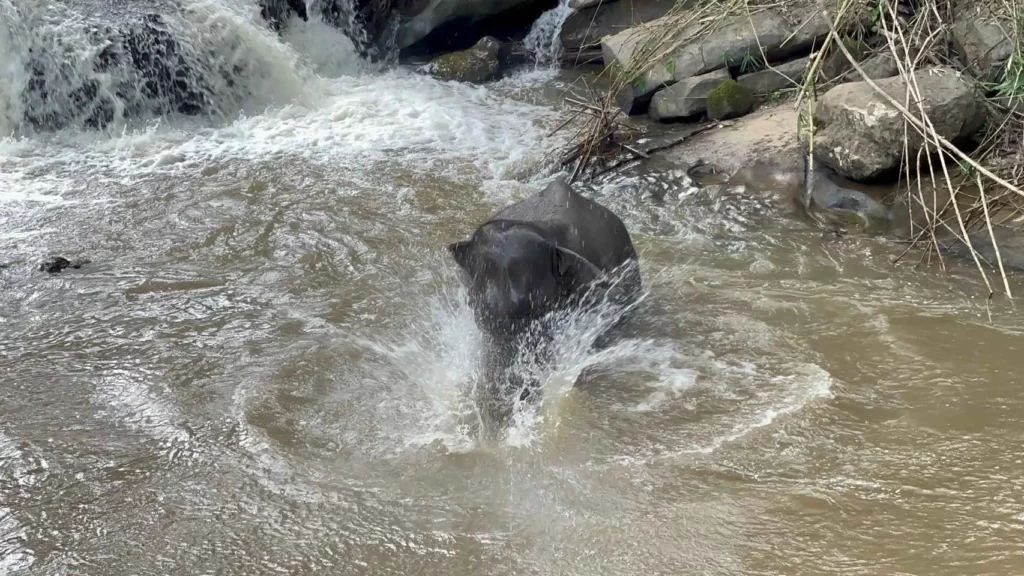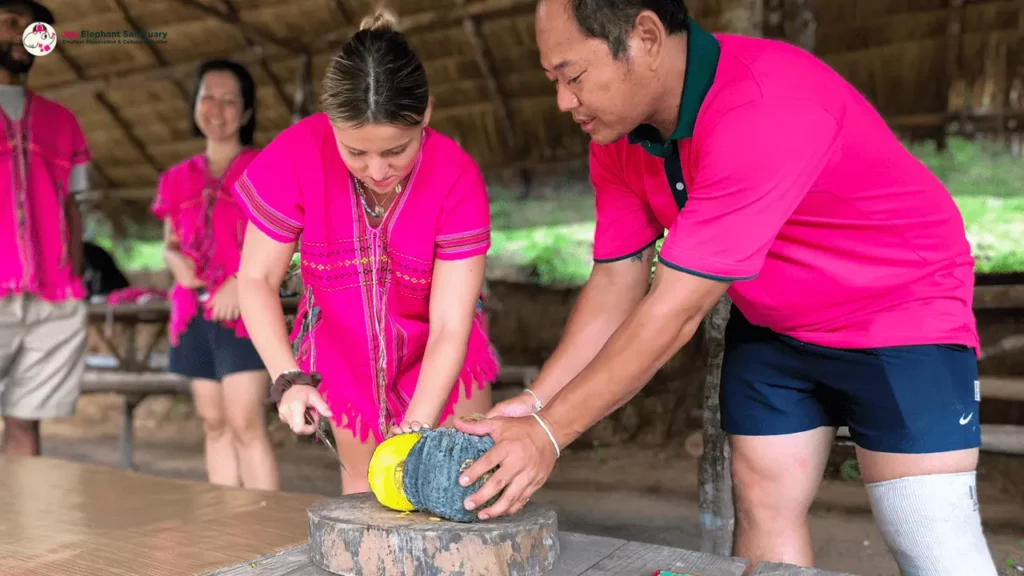When visiting an elephant sanctuary, it’s important to choose experiences that prioritize the elephants’ well-being. Watching elephants in their natural behavior is the most ethical choice. It is better than activities like riding or performances for many good reasons.
Signs of Poor Care
Understanding what constitutes poor care is key to making ethical decisions. Some indicators include:
- Riding and Performances: These activities often involve harsh training that can harm elephants physically and mentally.
- Limited Space and Habitat: Elephants in facilities without enough space or a proper environment miss out on natural behaviors like roaming and socializing.
- Poor Diet: Improper food can cause health issues and neglect the elephants’ nutritional needs.
- No Veterinary Care: Without regular check-ups and treatment, elephants’ health needs are neglected.

The Reality Behind Mud Baths and Washing
Not all elephants like to play in the mud or let visitors wash them. Many Elephants feel comfortable only with their mahout, and some facilities even force elephants into the water with visitors. To prevent this stress, Joy Elephant Sanctuary does not allow these activities, ensuring we respect the elephants’ natural preferences.

The Ethical Benefits of Elephant Observation
Choosing to observe elephants allows visitors to appreciate these animals in a manner that respects their natural state:
- Natural Behavior Observation: Watching elephants as they bathe, forage, and socialize without human interference shows their true nature. This allows for a better understanding of their behaviors and social bonds.
- No Performance or Riding: Avoiding activities that stress elephants helps promote ethical practices. Visitors support their well-being by not encouraging their use for entertainment.
- Education and Awareness: Ethical observation practices include educational components that inform visitors about elephant conservation and the importance of respecting wildlife.

Supporting Ethical Conservation Efforts
Ethical elephant observation isn’t just about what we avoid; it’s also about actively supporting conservation.
- Community Involvement: Ethical sanctuaries often work closely with local communities, providing sustainable jobs and supporting local economies without exploiting elephants.
- Conservation Funding: Funds generated from ethical observation tours contribute directly to the care and conservation of elephants, supporting efforts to maintain and improve sanctuary facilities.
Education is Key to Ethical Elephant Tourism
Many travelers unknowingly participate in unethical elephant tourism because they lack information about what is truly best for elephants. Education plays a vital role in transforming tourism into a more ethical and sustainable practice.
At Joy Elephant Sanctuary, we offer a refuge not only for elephants but also for the community. Visitors who want to learn more about these amazing animals are always welcome. Our ethical practices support both elephant well-being and community involvement, creating a positive experience for everyone—elephants, locals, and tourists alike.
Observation allows us to connect with these incredible creatures on their terms. This choice is both profoundly moving and deeply respectful.
By choosing Joy Elephant Sanctuary, visitors support a model of care that respects elephants’ rights and needs. They also help improve the well-being of the local community. Join us in setting a standard for compassionate and responsible elephant tourism.





